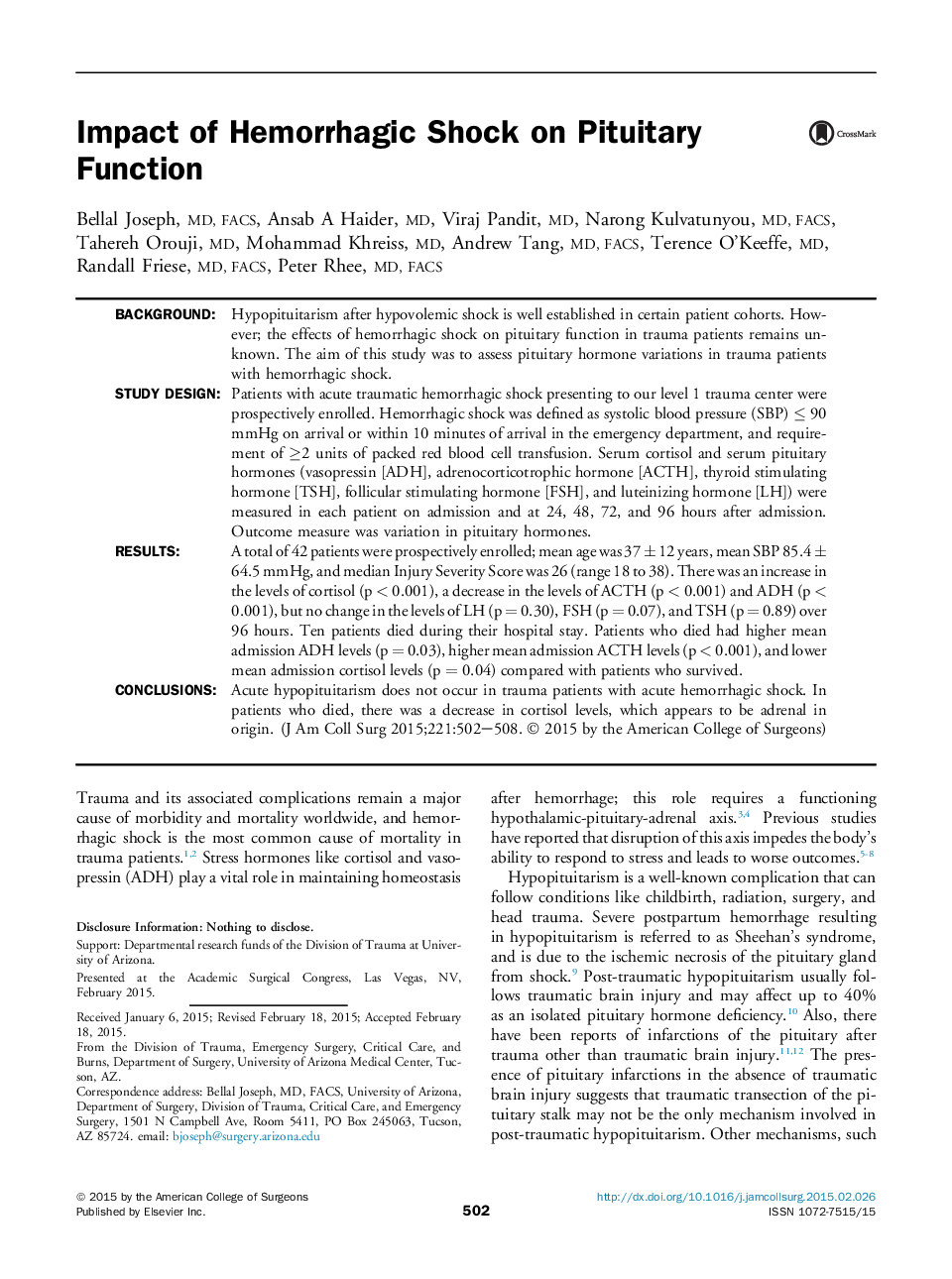| کد مقاله | کد نشریه | سال انتشار | مقاله انگلیسی | نسخه تمام متن |
|---|---|---|---|---|
| 6252656 | 1612217 | 2015 | 7 صفحه PDF | دانلود رایگان |
BackgroundHypopituitarism after hypovolemic shock is well established in certain patient cohorts. However; the effects of hemorrhagic shock on pituitary function in trauma patients remains unknown. The aim of this study was to assess pituitary hormone variations in trauma patients with hemorrhagic shock.Study DesignPatients with acute traumatic hemorrhagic shock presenting to our level 1 trauma center were prospectively enrolled. Hemorrhagic shock was defined as systolic blood pressure (SBP) ⤠90 mmHg on arrival or within 10 minutes of arrival in the emergency department, and requirement of â¥2 units of packed red blood cell transfusion. Serum cortisol and serum pituitary hormones (vasopressin [ADH], adrenocorticotrophic hormone [ACTH], thyroid stimulating hormone [TSH], follicular stimulating hormone [FSH], and luteinizing hormone [LH]) were measured in each patient on admission and at 24, 48, 72, and 96 hours after admission. Outcome measure was variation in pituitary hormones.ResultsA total of 42 patients were prospectively enrolled; mean age was 37 ± 12 years, mean SBP 85.4 ± 64.5 mmHg, and median Injury Severity Score was 26 (range 18 to 38). There was an increase in the levels of cortisol (p < 0.001), a decrease in the levels of ACTH (p < 0.001) and ADH (p < 0.001), but no change in the levels of LH (p = 0.30), FSH (p = 0.07), and TSH (p = 0.89) over 96 hours. Ten patients died during their hospital stay. Patients who died had higher mean admission ADH levels (p = 0.03), higher mean admission ACTH levels (p < 0.001), and lower mean admission cortisol levels (p = 0.04) compared with patients who survived.ConclusionsAcute hypopituitarism does not occur in trauma patients with acute hemorrhagic shock. In patients who died, there was a decrease in cortisol levels, which appears to be adrenal in origin.
Journal: Journal of the American College of Surgeons - Volume 221, Issue 2, August 2015, Pages 502-508
